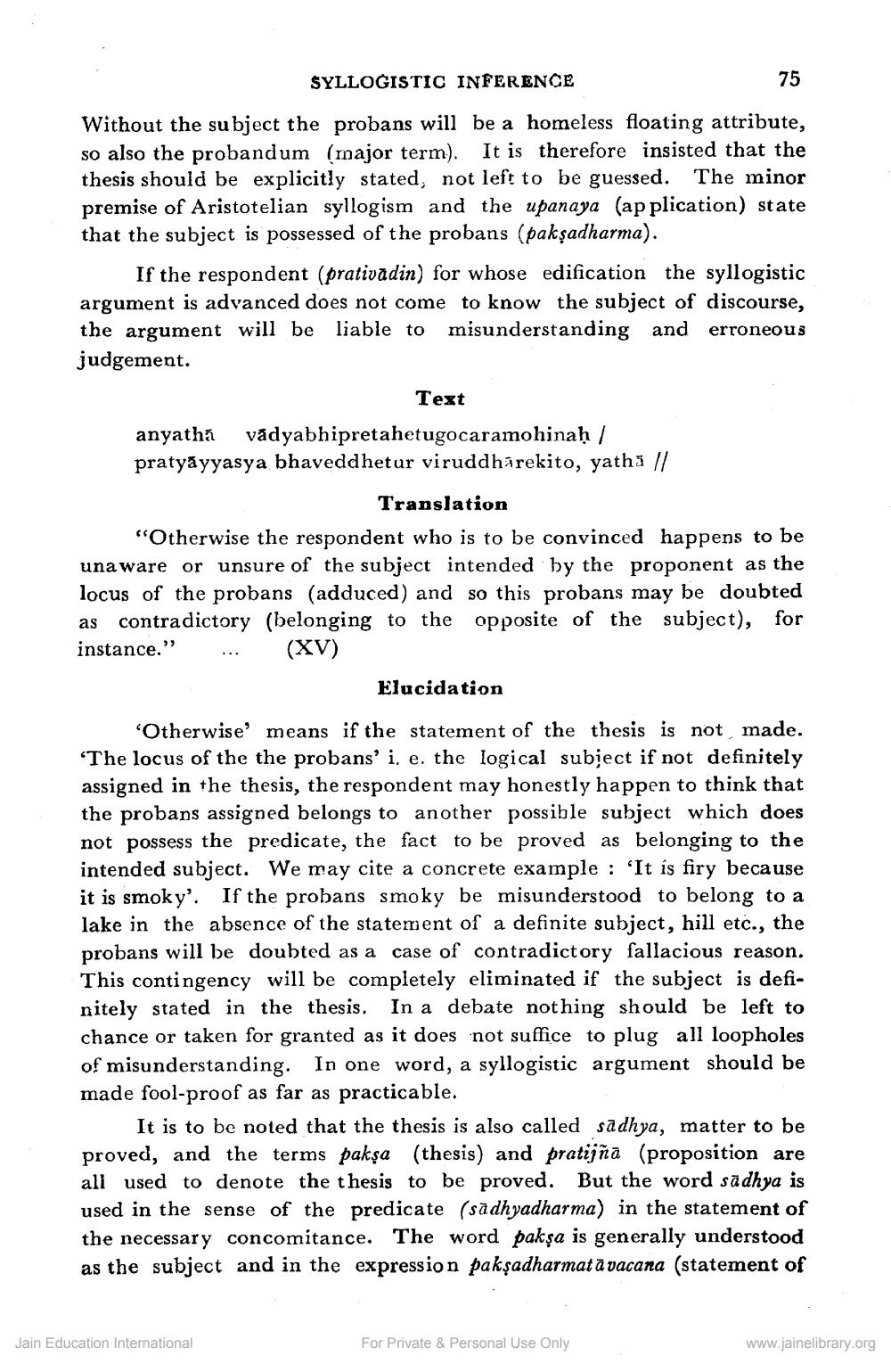________________
SYLLOGISTIC INFERENCE
75
Without the subject the probans will be a homeless floating attribute, so also the probandum (major term). It is therefore insisted that the thesis should be explicitly stated, not left to be guessed. The minor premise of Aristotelian syllogism and the upanaya (application) state that the subject is possessed of the probans (pakṣadharma).
If the respondent (prativadin) for whose edification the syllogistic argument is advanced does not come to know the subject of discourse, the argument will be liable to misunderstanding and erroneous judgement.
Text
anyathavadyabhipretahetugocaramohinah pratyāyyasya bhaveddhetur viruddhárekito, yatha ||
Translation "Otherwise the respondent who is to be convinced happens to be unaware or unsure of the subject intended by the proponent as the locus of the probans (adduced) and so this probans may be doubted as contradictory (belonging to the opposite of the subject), for instance." ... (XV)
Elucidation
'Otherwise' means if the statement of the thesis is not made. ‘The locus of the the probans' i. e. the logical subject if not definitely assigned in the thesis, the respondent may honestly happen to think that the probans assigned belongs to another possible subject which does not possess the predicate, the fact to be proved as belonging to the intended subject. We may cite a concrete example : 'It is firy because it is smoky'. If the probans smoky be misunderstood to belong to a lake in the absence of the statement of a definite subject, hill etc., the probans will be doubted as a case of contradictory fallacious reason. This contingency will be completely eliminated if the subject is definitely stated in the thesis. In a debate nothing should be left to chance or taken for granted as it does not suffice to plug all loopholes of misunderstanding. In one word, a syllogistic argument should be made fool-proof as far as practicable.
It is to be noted that the thesis is also called sadhya, matter to be proved, and the terms pakșa (thesis) and pratijñā (proposition are all used to denote the thesis to be proved. But the word sadhya is used in the sense of the predicate (sadhyadharma) in the statement of the necessary concomitance. The word pakșa is generally understood as the subject and in the expression pakşadharmatā vacana (statement of
Jain Education International
For Private & Personal Use Only
www.jainelibrary.org




